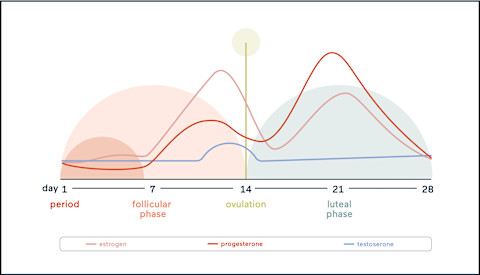Figure out what you are really afraid of and check if it’s likely to happen. Ask yourself: what am I really afraid of happening here? What is the worst that could happen? Then take a deep breath and keep up those deep breaths until you are calm. You need to wait until you are calm to remove the fight or flight response which blocks us from seeing things rationally. Then look at the worst scenario to see if it’s likely to happen. Most of the time the fears that cause our anxiety are based on a core fear that is extremely unlikely. If you find it is likely then it’s time to start problem solving and you can google that if you need steps to deal with a real fear.
Resilience has been described as the ability to withstand adversity and bounce back from difficult life events. Times are not easy now. How do we develop greater resilience to withstand the challenges that keep being thrown at us? In this interview series, we are talking to mental health experts, authors, resilience experts, coaches, and business leaders who can talk about how we can develop greater resilience to improve our lives.
As a part of this series, I had the pleasure of interviewing Dr. Jay Spence from Uprise Health.
Dr. Spence holds a Masters degree and PhD in digital health and worked as a clinical psychologist before founding a mental health technology company, which was acquired in 2021. He’s received multiple awards including joint recipient of the National Invention and Innovation Award as well as several awards for his research on digital therapeutics. He currently works as the Chief Product Officer at www.uprisehealth.com
Thank you so much for joining us! Our readers would love to get to know you a bit better. Can you tell us a bit about your backstory?
I had always wanted to work as a clinical psychologist but when I was a few years into my private practice I started to realize that I was seeing patients at the crisis end of a mental health journey that had started several years or even multiple decades ago. Often, I was treating people with moderate to severe mental illness who had environmental and lifestyle factors that impeded their recoveries. By the time I was seeing someone they didn’t have just one diagnosis but several, plus they had complex and stressful life events like bullying at work or domestic violence or serious substance dependencies. We have treatments that are effective for those conditions, but they take time and money. For the few patients who can afford the treatments (which can take several years) they typically recover but many drop out due to barriers like time, travel, cost, stigma and the host of issues people face when engaging in weekly therapy over a full period of treatment.
That experience of seeing people late in their mental health journey pushed me back to complete a PhD on how to intervene earlier in the journey. I was in the right time at the right place because the very early virtual psychology clinics were being set up in Australia, where I did my studies. I fortuitously landed in a research clinic where they were providing internet-delivered cognitive behavioral therapy (iCBT). The researchers there were already seeing some very promising early results treating patients using iCBT and I could see the potential for the industry to treat people much earlier in their mental health journey. That’s mainly because iCBT and online interventions via apps are a much easier entry point for most people to start their mental health treatment compared to seeing a therapist for an hour or more per week in the therapist’s office.
Can you share with us the most interesting story from your career? Can you tell us what lessons or ‘take aways’ you learned from that?
I have a lot of stories from private practice. Some are sad, others are happy and they are all very humbling to have been a part of. Those have definitely been the most interesting and touching moments of my professional career. In the interest of their confidentiality though I’ll share a story about the professor who got me interested in the field of digital health. Prof. Gavin Andrews was a psychiatrist who used to wear a bow tie and loved being a maverick. He was out to change the world and I was blessed to meet him at the end of his career when he no longer cared what other people thought about him. Digital health treatments were brand new and a lot of people at the university and hospital where we worked were actively trying to stop or slow Gavin down because they were concerned about patient safety. Gavin wasn’t out to be reckless with people’s lives but he absolutely had no time for people who didn’t understand his work and were trying to block him. At an electrifying grand rounds presentation to a packed room of doctors and colleagues he informed the room that everyone trying to stop him was categorically wrong, that in a few years internet delivered treatments will be prescribed by a physician and that we were witnessing the start of the next phase of psychological treatments. He was right on every count.
What do you think makes your company stand out? Can you share a story?
I joined Uprise Health in April of this year (2021) because they were putting together an incredible team of people to create a new mental health technology company. The leadership team was extremely accomplished, and they had the right people there to do what they were saying they would, which was to rebuild a large employee assistance provider into a state-of-the-art mental health technology organization. The existing company had all the elements within it to provide a highly comprehensive program of care; not just mental health care but chronic condition management, substance use monitoring, managed behavioral health and a host of other services. In a short amount of time, we’ve been able to build the technology to integrate all of these siloed services into one ecosystem, with the advantage of being able to provide highly coordinated care.
None of us are able to achieve success without some help along the way. Is there a particular person who you are grateful towards who helped get you to where you are? Can you share a story?
It’s hard to go past my parents. My mom is a psychotherapist and definitely got me started on my journey and fascination with psychology. My dad is an entrepreneur and helped me to step out of the safety of private practice and do some research into startups. He’s partly responsible for the impact that the startup has had, which is on a much larger scale than I ever would have achieved in private practice.
Ok thank you for all that. Now let’s shift to the main focus of this interview. We would like to explore and flesh out the trait of resilience. How would you define resilience? What do you believe are the characteristics or traits of resilient people?
I’ll refer to the shared definition provided by the leading researchers in the field: Resilience is positive adaptation, or the ability to maintain or regain mental health, despite experiencing adversity. It’s your capability to ‘bounce back.’
Courage is often likened to resilience. In your opinion how is courage both similar and different to resilience?
They are related but distinct. The definition of courage is very broad but when we look at how it is related to resilience, one framework we can use is Psychological Capital, or Psycap. Psychological Capital is made up of confidence to take on new tasks, remaining optimistic, perseverance and resilience. So, confidence, or courage, to take on a task and put the effort in to succeed is distinct from resilience but both make up our overall psychological capital. An example of this would be a nurse needs to be courageous when advocating for a patient on an ethical decision regarding their care. Afterwards she might need to be resilient in coping with the criticism from superiors whose ethics she criticised.
When you think of resilience, which person comes to mind? Can you explain why you chose that person?
The most powerful stories of resilience have typically come from those who have been through the greatest hardships and have discovered ways to not only survive but remain positive about their own lives and humanity. Viktor Frankl is an incredible example of a man who experienced the horrors of the holocaust but managed to remain genuinely positive through discovering meaning in his suffering and that of others.
Has there ever been a time that someone told you something was impossible, but you did it anyway? Can you share the story with us?
I wouldn’t say that people have told me that something is impossible but throughout starting and scaling my startup I was told ‘no’ or can’t’ or ‘shouldn’t’ or every variation of ‘what you’re proposing won’t work for me.’ Mostly, I got very good at accepting that keeping some people happy means that others will either be disappointed or actively dislike you. It wasn’t easy but it was necessary to keep the startup alive.
Did you have a time in your life where you had one of your greatest setbacks, but you bounced back from it stronger than ever? Can you share that story with us?
I had some particularly hard periods during the first year of the startup where we couldn’t make payroll. I had to keep topping it up out of my own money, which I felt guilty about and saw as evidence that things weren’t working out. I wasn’t sleeping well and woke up one morning at 4am to send an email to the board that I needed to close the company down. Fortunately, I’m married to an amazing woman who sat up and spoke with me. She convinced me it could wait until 6am. I managed to fall asleep and by the time I woke up I realized that I could keep going and gave the startup another go.
How have you cultivated resilience throughout your life? Did you have any experiences growing up that have contributed to building your resiliency? Can you share a story?
I do think that resilience can be self-taught but there is a huge part of resilience that is probably genetic and another component that is learned from others modeling resilient behaviors. I’m not across the research on the genetics of resilience but, broadly speaking, genetics account for a lot more of our behavior than we’d probably like to admit. It’s unfair to say we are on the same playing field since some of us inherit resilience as a trait from our parents and others grow up around highly resilient people and are normalized into resilient responses. I’m lucky that both my parents are extremely resilient people. I’m in a small percentage of people so I feel as though we have a moral responsibility to create systems and processes that protect people who didn’t have this advantage in life. Frankly, I find it absurd that people label people with mental illness as lazy since anyone who has taken a full family history from someone with a mental illness can see that their mental health is determined by a thousand factors of which ‘laziness’ is the most minuscule part.
Resilience is like a muscle that can be strengthened. In your opinion, what are five steps that someone can take to become more resilient? Please share a story or an example for each.
There are dozens of ways to increase resilience and I’d recommend that people look for methods that are supported by research. The Positive Psychology Center (via the University of Pennsylvania) is a good place to start. Here are a few that I like personally:
- Figure out what you want (but can’t have) and let that go
Often our stress is caused by having an argument with reality. We want something to happen but it isn’t and so we feel bad. One way to deal with that is to think about what you might really want but the reality is that you can’t get it right now in this moment. Then let that go. Here are some examples of how to do that. Try saying this if any of these apply to you: “I let go of my need to have people like me”; “I let go of my need to have this work out how I want it to”; “I let go of my need to be right”; “I let go of my need to look a certain way”; “I let go of my need for someone to be different to how they actually are”
2. Figure out what you are really afraid of and check if it’s likely to happen
Ask yourself: what am I really afraid of happening here? What is the worst that could happen? Then take a deep breath and keep up those deep breaths until you are calm. You need to wait until you are calm to remove the fight or flight response which blocks us from seeing things rationally. Then look at the worst scenario to see if it’s likely to happen. Most of the time the fears that cause our anxiety are based on a core fear that is extremely unlikely. If you find it is likely then it’s time to start problem solving and you can google that if you need steps to deal with a real fear.
3. Figure out if can wait a day to be worried about this
Our anxieties loom large to us in the moment. To overcome them we need perspective. One way to get a realistic perspective on the size of the worry we are facing is to wait a day to worry about it or take action on it. If we track the things we worry about, most of them are not as bad as we thought by the next day. Again, it’s important to take deep breaths until the fight or flight response wears off then ask yourself: can I wait a day and worry about this tomorrow if it’s still a problem? Keep repeating this if the thought comes back. If you are still worried about it tomorrow and you need to take action, then go for it. Hopefully, you’ve been spared from a day of anxiety.
4. Figure out how responsible you really are for things you feel guilty about
The amount of guilt we feel is the result of how responsible we feel for a bad outcome. However, we typically overestimate our own role and hence we can be paralyzed by guilt. To get out of this cycle, think of something you feel guilty about then list all of the other things that impacted the outcome. For example: you might feel bad about a project that is going badly at work. Write down all of the things that are impacting the outcome like ‘colleagues,’ ‘boss,’ ‘lack of funding/budge,t’ ‘needing to care for my sick parents,’ ‘needing to homeschool two kids,’ etc. Once you see them written out you’ll hopefully see that you have a role in the outcome but don’t need to feel fully responsible for it.
5. Figure out if there is a secret payoff for ruminating
Sometimes we go over and over things even though part of us knows it’s unhelpful. Often there is a secret payoff that keeps us unconsciously ruminating or going over certain thoughts. For example: some of us repeatedly dwell on mistakes because we unconsciously believe in a payoff where we can avoid mistakes in the future by figuring out past mistakes. Other times we ruminate about things that could go wrong because we unconsciously believe in a payoff where we are better prepared. If you find your payoff then you might want to let it go if the costs of rumination aren’t working for you. It’s not easy to make the unconscious become conscious but it’s crucial for getting out of old patterns that don’t work for us anymore.
You are a person of great influence. If you could inspire a movement that would bring the most amount of good to the most amount of people, what would that be? You never know what your idea can trigger. 🙂
I’m not really interested in inspiring a movement myself but there are inspiring movements that I contribute to because I think that they are human and vital. Universal Basic Income is currently being trialled in multiple forms throughout the world and I think that finding a way to meet basic needs financially holds enormous promise for society and the way we think about work. If you want to get radical, then wealth redistribution would be a panacea, but I don’t think it’s realistic in my lifetime. I think that digital therapeutics (using software to be able to enhance mental health) is still in its infancy and has enormous potential to address human suffering. And although I still haven’t found a good way to contribute, I would love to find a way to make a serious contribution to slowing or stopping climate change.
We are blessed that some very prominent leaders read this column. Is there a person in the world, or in the US with whom you would love to have a private breakfast or lunch with, and why? He or she might just see this, especially if we tag them 😊
Obama. The most incredible leader I’ve ever seen and someone who I think history will appreciate even more than those lucky enough to have been alive during his presidency.
How can our readers further follow your work online?
You’re welcome to follow me on LinkedIn here.
This was very inspiring. Thank you so much for joining us!








